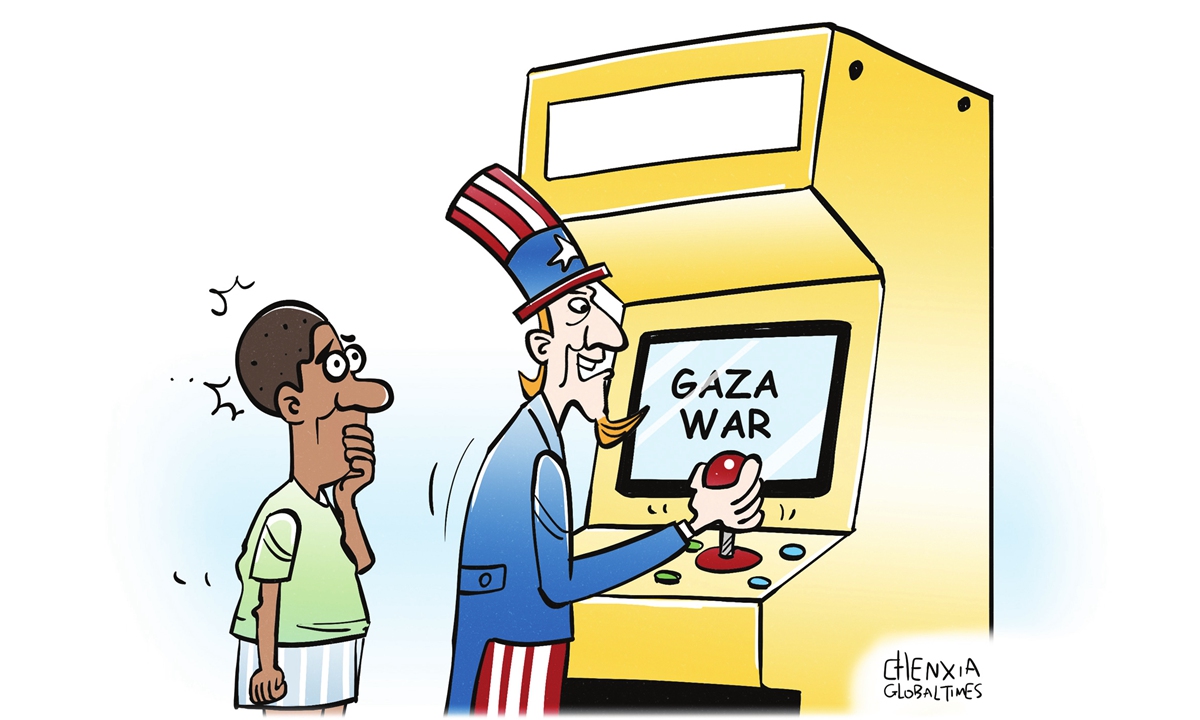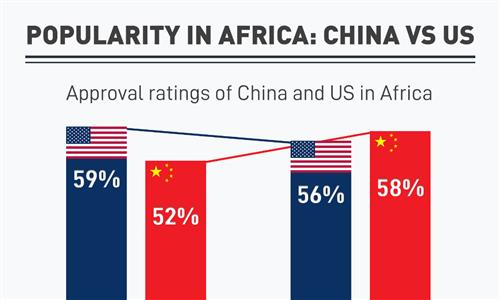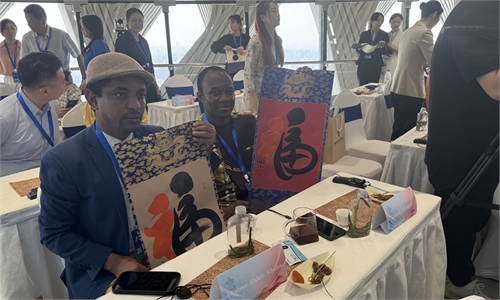
Illustration: Chen Xia/GT
Palestine-Israel tensions have escalated into the Gaza War with the effects being felt in the Middle East, Africa and beyond. As the US continues to take a strong stand in support of Israel, China has maintained a more reconciliatory approach urging for an immediate cease-fire, an end to fighting and for humanitarian corridors to remain open, usable and safe.
China's position is to de-escalate tensions, for all parties to exercise restraint and pave the way for a two-state solution in line with the United Nations approach. But as the effects of this conflict reverberate across the Middle East and elsewhere, it is emerging that the conflict could cost the US its standing in Africa.
The high-handed interference in foreign matters by the US has only widened cracks in its ties with African countries. The US is now in an unprecedented dilemma regarding its standing with Africa as a growing number of nations on the continent say it can no longer be business as usual.
African countries are progressively resisting the West's longstanding win-lose strategy with the scales always balanced in the US' favor. The US imposes its policies with a total disregard for the sovereignty of other nations, peace, stability, economic growth and development.
Chad had earlier threatened to terminate its security agreement with the US. In Niger, protesters demanded the removal of American troops from the country and the government terminated its military cooperation deal. Niger has taken a hard stance against the West and its interests, preferring instead to look more closely toward Russia and away from Western powers.
Kenya's Finance Bill 2024 has significantly heightened political temperatures in the East African nation as the opposition insists that the punitive high-tax Bill was dictated by powerful US officials. Citizens on social media continue to strongly challenge US involvement in Kenya's internal affairs.
Relations between the US and Uganda have grown increasingly tenuous as President Yoweri Museveni continues to vocalize strong opposition to the external influence of Western powers. As turmoil and uncertainty prevail in the Middle East, China has shown a deep understanding of the intricate links between peace, stability and economic cooperation.
Equally important, China's foreign policy leads with compassion, understanding, respect and friendship.
African countries that have recently shown strong hostility toward the US, such as the Democratic Republic of Congo and Niger, prefer to look toward Russia and China. Unlike China, Russia has not had a strong presence on the African continent.
But as the US continues to mishandle matters important to the global community, there is a shift in perspectives and a readiness for African countries to re-evaluate their bilateral and multilateral ties. There is a growing perception on the continent that, as revealed in the Gaza War, the US is neither willing nor ready to change its approach with foreign nations and entities.
This is an area where China continues to excel and its approach is guided by a win-win scenario and not competition for global power at all costs. China has been a defender of justice and equity, maintaining a friendship with both Israel and Palestine.
The West is more focused on global dominance even when that dominance is in conflict with world peace and sustainable development for all humanity. China and Russia are committed to providing global leadership to prevent the world from descending into disorder.
Chinese President Xi Jinping and Russian President Vladimir Putin jointly addressed the press in Beijing on May 16, 2024. It was Putin's first state visit since his new presidential term.
Notably, their strong message was centered on continuing to uphold the principles of win-win cooperation, non-alliance, non-confrontation and deepening ongoing two-way political trust, respecting each other's choice of development path, and realizing development and revitalization with each other's firm support.
It is for these very reasons that China is increasingly emerging as a giant in global governance. China-Arab ties are stronger than ever as evident in the Arab States-China Summit.
China's ties with Saudi Arabia and the United Arab Emirates have deepened and these are two of the most powerful nations in the Middle East. The eastern economic powerhouse has significant investments in the Middle East and Africa, and most notably in the partner countries of the Belt and Road Initiative. During these turbulent times, China is emerging as a stabilizing force.
The author is a Kenya-based journalist. opinion@globaltimes.com.cn



